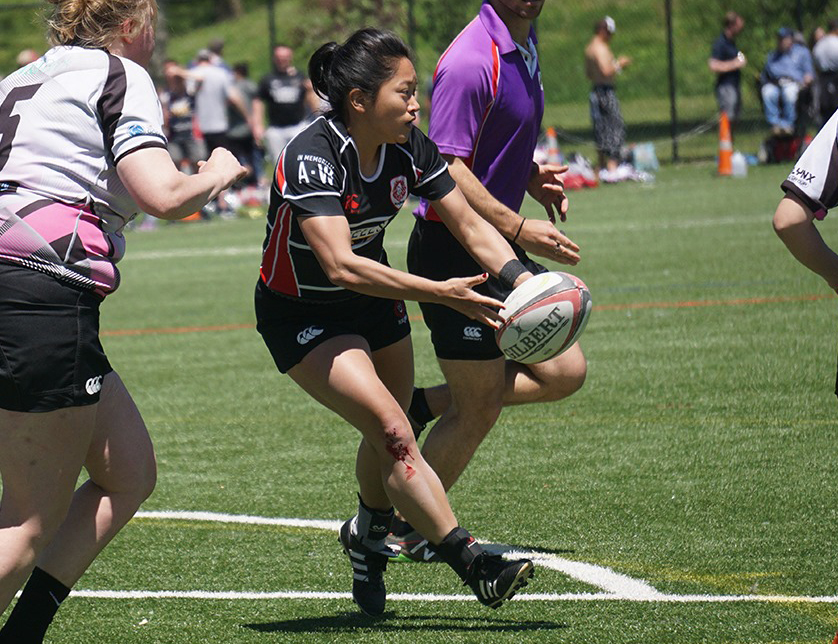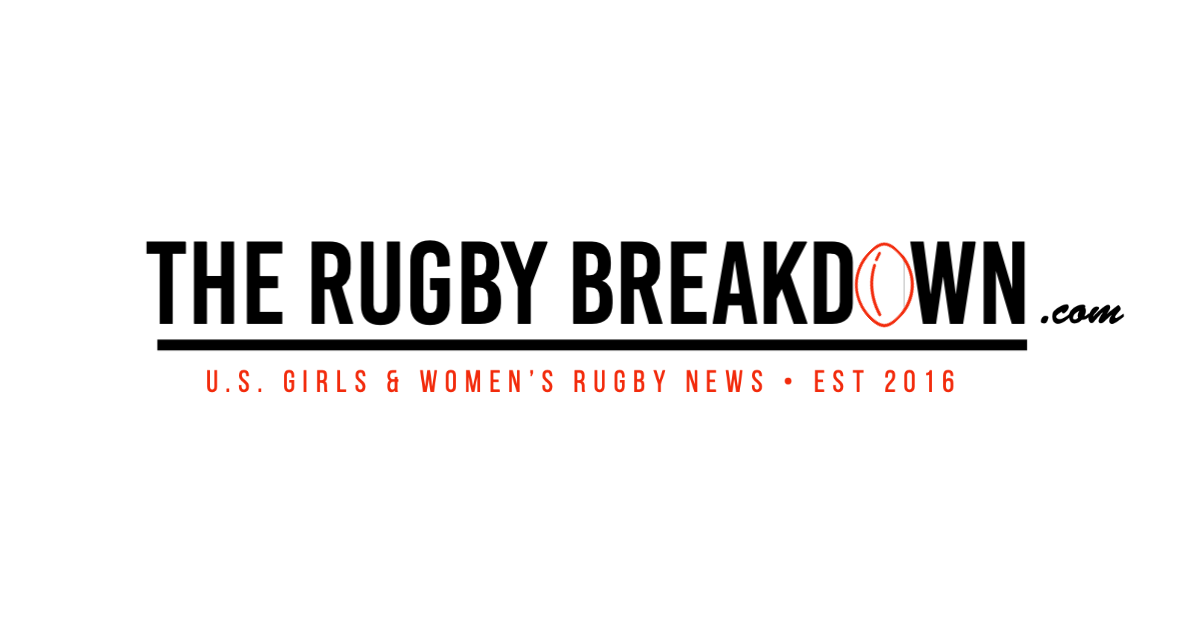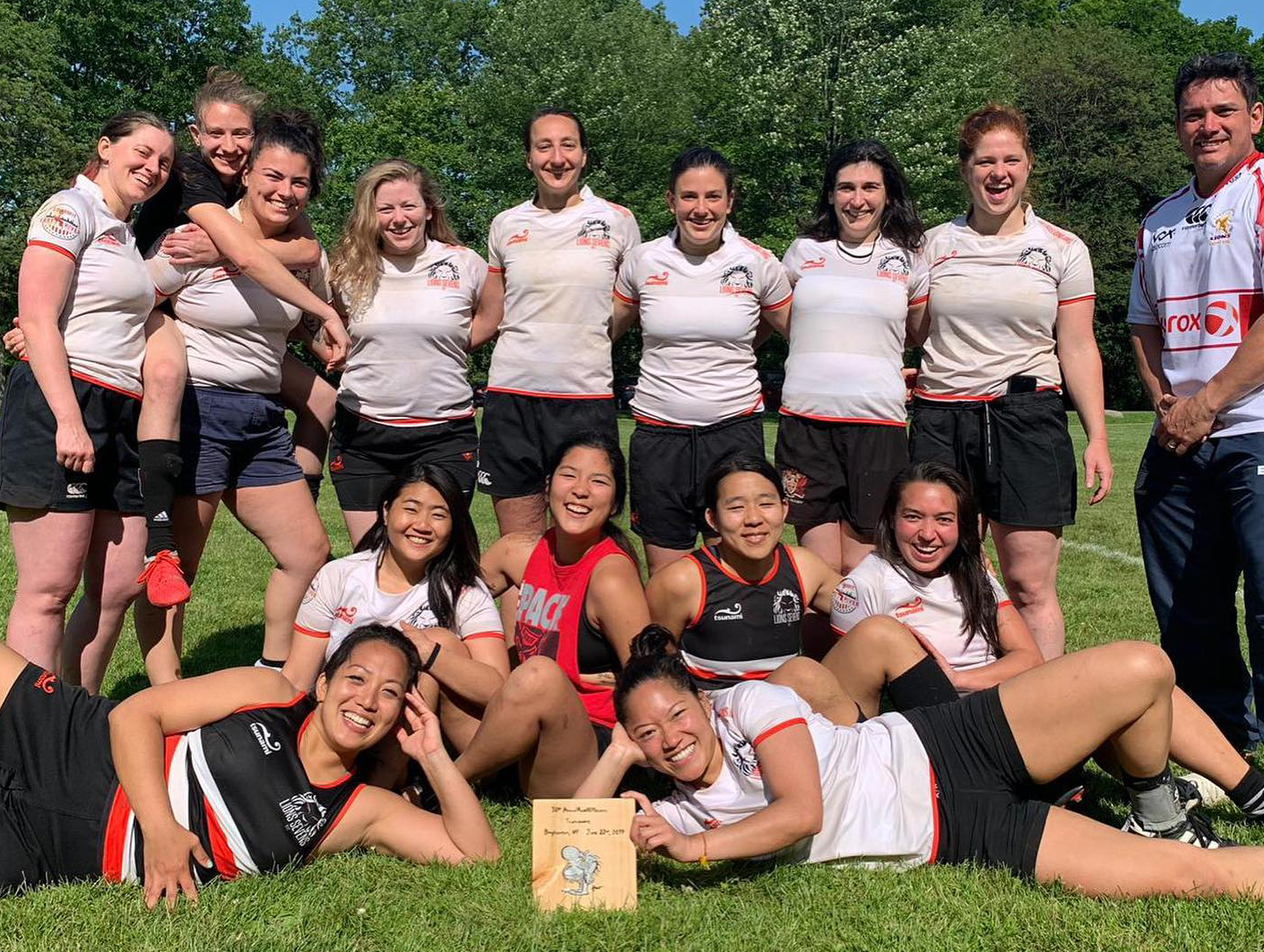This Saturday the Atlantic North will name its two representatives to the USA Rugby Club 7s National Championship, but the region has already awarded two titles to its Geographic Union (GU) series champions: New England’s Beantown and Empire’s Village Lions.
The GU series provide some structure and incentive to teams that want a 7s season somewhere between social and nationals-oriented and/or for clubs with multiple sides, but finding the right mix of commitment and consistency can be challenging. For Empire GU (EGU) champion Village Lions, this series helped build some internal momentum and confidence; however, the quality of competition and tournaments was frustrating at times.
“We were a bit of a motley crew who really bonded together to make this season happen despite a bumpy start and some unfortunate injuries,” Village Lions 7s captain Vicky Dushku reflected. “Our core group was small but committed, about 6-7 of us who have been playing together for a few seasons now. We also benefited from the big contributions of Lions who had been on hiatus, including Cat Sum and Tara Harten.”

Cat Sum / Photo: Jackie Finlan
A handful of newer recruits bolstered the lineup, including the now-rehabbed Logan Bays, a speedy finisher who had only played one season of rugby before breaking an ankle.
“You could sense her hesitation in the first tournament, but by the second weekend she was making brilliant runs and executing try-saving tackles,” Dusku praised.
Lions 7s coach Morne Pretorious brought it all together, and put a big focus on maintaining possession.
“A lot of our training went toward supporting the ballcarrier, how to buy time for support to reach you, and quickly moving the ball away from turnover situations,” Dushku explained. “His other main objective was to instill a sense of dynamic play. Variation in both ball and player movement was paramount to create opportunities.
“While Morne provided the squad with endless tools to be successful on the pitch, I think the most important and influential aspect of his coaching is his positivity,” the captain added. “His cheerful attitude and ability to adapt to any circumstance was imprinted on the team and fundamental to our season.”
The season started roughly, with a 1-4 performance at Rockaway, but steadily improved throughout the summer, and Dushku credited these incremental advances to Pretorious’ coaching. Competition wise, Buffalo-area Queen City provided great pushback and match scores were often single-digit decisions.
“When we competed against them, our team play was elevated and remained steadfast for the rest of the day,” Dushku noted. “It was probably most noticeable in the Syracuse tournament where Queen City was our first opposition. The whole squad was so in sync that we held possession for 70% of the match. This synergy carried through the whole day with the team working seamlessly in every game. Our performance as a whole at that tournament was the highlight of the season.”
The Lions went 4-1 at that fourth tournament in Syracuse, and ended the series with three second-place finishes, thus amassing enough standings points to secure the EGU 7s title. It was a notable accomplishment, but there were some frustrations throughout the season.
“Sadly, we found the EGU series to be a bit lackluster,” Dushku confessed. “With a limited number of teams competing in EGU 7s, most women’s teams in the area are spread across various tournaments, making the level of competition inconsistent week to week. This is compounded when EGU and [Atlantic North] Qualifier tournaments aren’t combined. Overall, we felt tournaments closer to NYC had a higher level of competition. However, with two tournaments requiring overnight stays, it’s both a deterrent for other teams to travel as well as limits our availability of players.”
To boot, two of the four EGU 7s tournaments were hosted by clubs with no women’s team.
“Some game-day schedules were difficult to manage – particularly, having three-hour breaks between games or the consolidation of EGU and Social pools for playoff bracket games,” Dushku continued. “It’s a combination of these elements that made competing in the EGU a bit unglamorous.”
But the Village Lions aren’t necessarily looking to bump up to the Atlantic North qualifier level yet. The team is still in a building-momentum and recruitment phase, and can’t aptly predict the makeup of the team next summer.
“While we are a very competitive group of women, we probably aren’t quite ready to commit to that next step in competition,” Dushku concluded. “Regardless, we’ll be playing to win in whatever tournaments we do attend next year.”
New York, Roots, Beantown and Boston are vying for the Atlantic North seeds to nationals; stay tuned for coverage.



